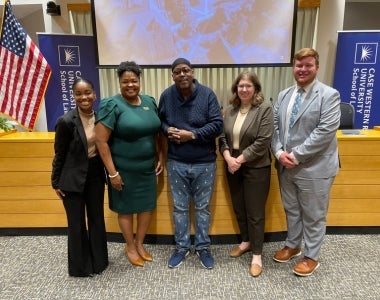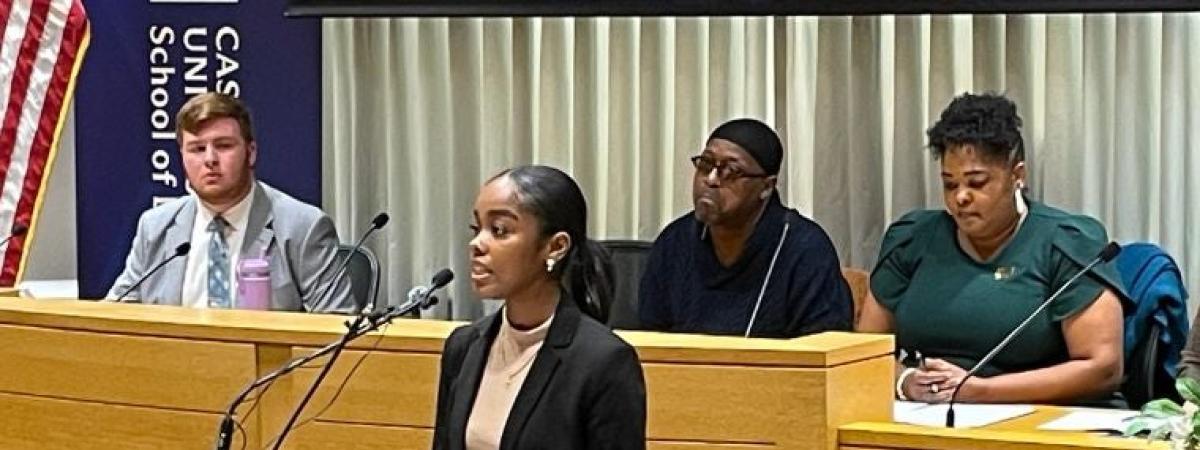A decade after Tanisha Anderson was killed after being restrained by Cleveland police during a mental health crisis, Case Western Reserve University School of Law students are working to change local policy to honor her memory—and prevent such tragedies from happening again.
Members of the Student Legislative Initiative of Cleveland (SLIC), a dedicated group of CWRU law students who are committed to introducing impactful local policy, worked with Anderson's family to introduce Tanisha’s Law to Cleveland City Council.
Tanisha’s Law aims to equip Cleveland police with improved protocols and training for responding to individuals in mental health crises. The CWRU law students spent the last two years working with Tanisha’s family on research and drafting the law.

“We were introduced to Mr. [Michael] Anderson, Tanisha’s uncle, through Professor Ayesha Bell Hardaway, who organized a visit for Mr. Anderson to the law school in March of 2023,” said Yaninna Sharpley-Travis, one of the students involved in SLIC. “He spoke to the interested students about his goal of memorializing Tanisha through a law that would offer community members experiencing a mental health crisis an alternative to traditional police response.”
Over the next year, law students, led by Michael O’Donnell (LAW ’24) and Alexandra Mendez-Diez (LAW ’24), researched the legal issues as well as various mental health crisis response models, working to ensure that the proposed legislation reflected the goal of meaningful change in crisis response. The students researched the efficacy of co-response programs, in which a specially trained police officer works together with a mental health expert, and care response models, which call for an unarmed mental health expert to respond without the presence of police. Their work ultimately led to a draft of the law that includes both co-response and care response models.
“These models aim to encourage a more compassionate, safer and comprehensive mental health crisis response to aid our community members in need,” Sharpley-Travis said. “We truly believe that the city’s commitment to adopting these measures would go a long way in reducing and preventing the harm that community members in crisis face when intervention is needed.”
Case Western Reserve University hosted a press conference in its Moot Courtroom to inform the public about the legislation, which is co-sponsored by council members Stephanie Howse-Jones, Rebecca Maurer and Charles Slife. During the press conference, Michael Anderson recognized the council members' support for the law, as well as the students’ pivotal role in creating the proposed draft. He also commended the law school and the university’s commitment to social justice, applauding the efforts of Bell Hardaway, who serves as director of the Social Justice Institute and Social Justice Law Center.
"The collaboration between our students, Mr. Anderson, and community members on this endeavor has been gratifying to observe,” said Bell Hardaway. “The reciprocal learning and supportive advocacy between the stakeholders was readily apparent. A possible legislative solution for crisis response is an important opportunity for those who live, work and visit Cleveland."





